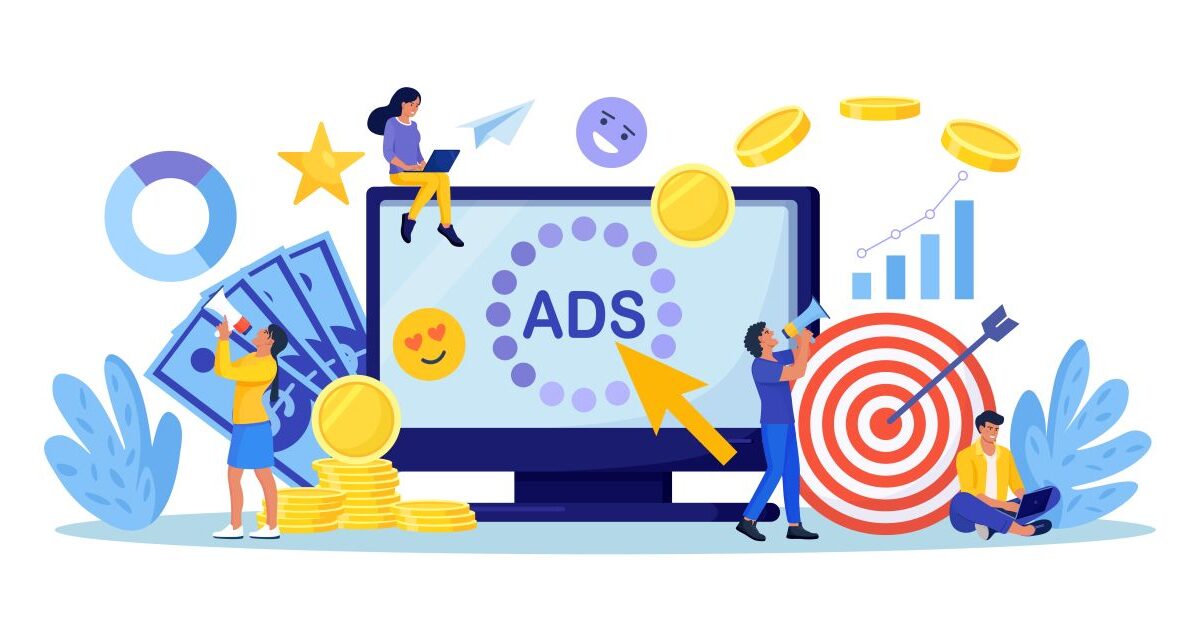In PPC (Pay-Per-Click) campaigns, paid search represents a digital advertising approach wherein advertisers incur a charge for every click on their ad. It’s a way of buying visits to a website rather than earning those visits organically through techniques like SEO (Search Engine Optimization).
In paid search campaigns, ads are displayed on search engine results pages (SERPs) when users search for specific keywords related to the advertiser’s offerings. These ads usually appear above or below the organic search results and are labeled as “sponsored” or “ad.”
The art of mastering paid search intelligence stands as a cornerstone for driving targeted traffic and achieving unparalleled campaign success. Embracing the power of a paid advertising plan goes beyond mere investment; it hinges upon the strategic utilization of data-driven insights, competitive analysis, and continual optimization.
Let us explore the intricate world of paid search intelligence—a realm where data meets strategy, enabling businesses to unlock the full potential of their online advertising endeavors.
What is Paid Search Intelligence?
Paid search intelligence refers to the insights, data, and analytics gathered from various sources related to search engine behavior, user queries, and trends. It encompasses a range of information derived from search engines, tools, and platforms that help businesses understand and optimize their online presence, particularly in search engine results.
Components of Search Intelligence:
- Keyword Analysis: Understanding the keywords users are searching for and their search volumes is crucial. This analysis helps in identifying high-value keywords to target in SEO and PPC campaigns.
- User Behavior Insights: This involves studying how users interact with search results, such as click-through rates, time spent on websites, bounce rates, and conversion rates. This data aids in optimizing website content and user experience.
- Competitive Analysis: Examining the strategies of competitors in search engine results, including their keyword choices, ad copies, and search visibility, allows businesses to fine-tune their own strategies and identify gaps or opportunities.
- Trend Identification: Recognizing emerging trends, seasonal variations, or shifts in user behavior aids in adjusting winning marketing strategies and content to align with current interests and needs.
- Algorithm Updates: Staying informed about search engine algorithm updates (e.g., Google’s updates) is essential. Understanding these changes helps in adapting SEO strategies to maintain or improve search rankings.
Importance of Search Intelligence:
- Optimizing Marketing Strategies: It allows businesses to refine their SEO, PPC, and content strategies based on real data and user behavior, leading to more effective campaigns.
- Enhancing User Experience: Paid search insights help in tailoring website content and structure to better meet user needs, ultimately improving user experience.
- Staying Competitive: Understanding the competitive landscape and adjusting strategies accordingly helps in staying ahead in the market.
Tools for Search Intelligence:
- Google Analytics: Provides in-depth insights into paid search traffic, user behavior, and acquisition sources.
- Keyword Research Tools: Tools like Google Keyword Planner, SEMrush, or Ahrefs help in identifying relevant keywords and their search volumes.
- Competitor Analysis Tools: Platforms with a paid search overview page like SpyFu or SimilarWeb assist in understanding competitors’ strategies and performance.
Want to elevate your campaigns with paid search intelligence?
Contact Growth Hackers
13 Strategies to Optimize Your Paid Search Campaigns
Optimizing PPC campaigns involves a series of strategies aimed at maximizing the return on investment (ROI) and improving the overall performance of your ads. Here’s a detailed breakdown of key strategies:
1. Keyword Research and Management
Thorough research involves meticulously identifying keywords relevant to your industry, products, or services. This process requires comprehensive exploration and analysis using tools like keyword planners to uncover high-performing keywords with substantial search volumes.
Keyword grouping plays a vital role in organizing keywords into logical, tightly themed groups. Grouping ensures better ad relevance and facilitates the creation of more targeted ads and landing pages, ultimately improving campaign performance.
Negative keywords are equally critical. These are terms irrelevant to your offerings that, when added to campaigns, prevent your ads from displaying unrelated queries. Implementing negative keywords saves the budget by focusing ad spending on more relevant searches.
2. Compelling Ad Copy and Ad Extensions
Crafting engaging content for ad copies is crucial. These copies need to resonate with your target audience, compelling them to click on your ad. Tailoring content to align with user intent and addressing pain points or solutions drives higher engagement.
Utilizing ad extensions such as site links, callouts, and structured snippets enhances ad visibility and provides additional information. These extensions offer more details, increasing the chances of users clicking on the ad and taking action.
3. Landing Page Optimization
Ensuring relevance between ad content and landing pages is essential. The landing page must seamlessly connect with the ad messaging, offering a consistent user experience and fulfilling user expectations.
A clear Call-to-Action (CTA) guides visitors toward the desired action, such as making a purchase or signing up. A compelling CTA prompts users to take action, optimizing conversion rates.
4. Bidding Strategies and Budget Management
Bid optimization involves adjusting bids based on keyword performance, conversion data, and specific ROI goals. This strategy ensures efficient spending by focusing resources on keywords that drive the best results.
Automated bidding strategies offered by platforms like Google Ads leverage machine learning to manage bids effectively. These strategies use historical data to make real-time bid adjustments for optimal performance.
Effective budget allocation involves distributing budgets among campaigns based on their performance. Prioritizing high-performing campaigns while experimenting with others helps in maximizing ROI.
5. Targeting and Audience Segmentation
Geographic targeting allows you to focus ads (e.g. Bing ads, Google ads, etc.) on regions where your target audience is concentrated. Tailoring campaigns to specific locations increases relevancy and improves conversion rates.
Device targeting involves adjusting bids for different devices based on performance metrics. Optimizing bids for mobile or desktop users based on conversion data ensures efficient spending.
Audience segmentation utilizes audience data to create targeted ads for different customer segments. Personalizing ad content to specific audience groups increases engagement and conversion rates.
6. Ad Testing and Experimentation
A/B testing involves testing variations of ad copies, headlines, CTAs, or visuals to identify the most effective combinations. Experimenting with different elements helps in optimizing ad performance.
Ad schedule testing entails experimenting with different days and times to identify peak performance periods. Adjusting ad scheduling based on performance data maximizes exposure during high-conversion times.
7. Continuous Optimization and Monitoring
Regularly reviewing campaign performance and making adjustments based on real-time data ensures ongoing optimization. Adapting to changing trends or user behaviors keeps campaigns relevant and effective.
Improving Quality Scores by optimizing keywords, enhancing ad relevance, and refining landing page experiences boosts ad performance. Constant quality score improvement contributes to better ad placement and reduced costs.
8. Utilize Remarketing
Remarketing, a powerful strategy, involves reconnecting with users who’ve previously interacted with your website or products. Dynamic remarketing takes this a step further by displaying personalized ads to users based on their past actions, showcasing the exact products they viewed. Custom audiences enable the segmentation of visitors into specific groups based on their behavior, allowing tailored messaging for higher conversion rates. Utilizing these strategies helps re-engage potential customers, reinforcing brand familiarity and increasing the likelihood of conversion.
9. Ad Quality and Relevance
Maintaining high ad quality and relevance is pivotal for PPC success. Ad relevance involves aligning keywords, ad copy, and landing pages cohesively to ensure users find what they’re looking for. By continually optimizing this alignment, ad quality improves, leading to higher click-through rates and better user experiences. Focusing on ad quality ensures that the content is engaging, informative, and relevant to users’ search intent, ultimately driving better performance.
Get ready to harness the power of paid search intelligence today!
10. Implement Ad Customizers
Ad customizers provide dynamic elements within ads, offering personalized content to users. Dynamic keyword insertion adapts ad text to match users’ search queries dynamically, making the ad more relevant and increasing its appeal. Countdown timers create urgency by displaying the time remaining for a limited offer or promotion, encouraging users to take immediate action. These customizations enhance the relevance of a successful ad campaign that drive higher engagement and conversion rates.
11. Experiment with Ad Formats
Expanding beyond traditional text ads, experimenting with video and display ads can broaden a campaign’s reach and engagement. Video ads, for instance, convey messages visually, potentially increasing user engagement. Responsive search ads, a newer format, enable automatic testing of different combinations of headlines and descriptions, optimizing ad performance. By diversifying ad formats, advertisers can capture different audience preferences, potentially improving overall campaign performance.
12. Incorporate AI and Machine Learning
Leveraging AI and machine learning in PPC campaigns offers advanced capabilities for optimization. Automated bidding strategies use AI algorithms to optimize bids based on various signals and historical data, improving efficiency. AI-powered ad copy generation allows for testing and generating ad content with enhanced relevance and engagement potential. Integrating these technologies streamlines campaign management and enhances performance through data-driven decision-making.
13. Competitive Analysis and Insights
Analyzing competitors’ strategies provides valuable insights for refining your own campaigns. Examining competitors’ keyword choices and ad strategies aids in identifying high-performing keywords and refining ad content. Monitoring competitors’ ads and adjusting strategies to stay competitive ensures your campaigns remain relevant and effective in a dynamic market. Utilizing competitive intelligence helps in staying ahead and adapting strategies for better campaign performance.
Final Thoughts on the Power of Paid Search Intelligence
Harnessing the power of paid search intelligence isn’t merely about gathering data; it’s about deciphering the intricate patterns within that data to glean actionable insights. It’s the art of refining keywords, crafting compelling ad copies, and precisely targeting audiences, all driven by the ever-evolving understanding of user behavior and market trends. It’s the compass guiding businesses through the maze of keyword choices, ad variations, and audience segments, helping them carve a distinctive path toward achieving their marketing objectives.
If you need help optimizing your paid search strategy, don’t hesitate to contact Growth Hackers.
Growth Hackers is more than just your PPC management agency—we’re your growth partner, dedicated to propelling your business to new heights through innovative strategies and data-driven insights. In a landscape where competition is relentless and the pursuit of leads and sales never ceases, our award-winning expertise in growth hacking sets us apart.
Stagnant leads and sales? Contact Growth Hackers and transform that into fast, sustainable, and scalable growth, leveraging the best practices, trends, and tools in the industry.








